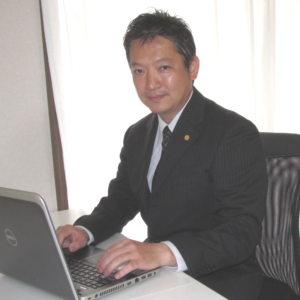Explanation about non-notified permanent residency under the residence status ‘Permanent Resident

There are “notified" permanent residency, which is determined by the Minister of Justice’s “Permanent Resident Notification," and “non-notified" permanent residency not specified by the notification. Here’s a brief definition of each activity:
- Notified Permanent Residency: Activities as individuals with a predetermined status based on the Permanent Resident Notification
- Non-notified Permanent Residency: Activities not considered as individuals with a predetermined status based on the Permanent Resident Notification but eligible for the residency status of “Permanent Resident"
Operationally, while the application for the Certificate of Eligibility for Notified Permanent Residency (foreigners living abroad applying for residency status) is permitted, it is not allowed for non-notified permanent residency. Hence, it is considered to be primarily intended for individuals already living in Japan. However, even if you live abroad, it’s possible to apply after coming to Japan on a visa for short-term stays.
- 1. About Non-Notified Permanent Residency
- 1.1. Recognized Refugees
- 1.2. Individuals who wish to continue residing in Japan after divorce from a Japanese, “Permanent Resident," or Special Permanent Resident spouse
- 1.3. Individuals who wish to continue residing in Japan after the death of a Japanese, “Permanent Resident," or Special Permanent Resident spouse
- 1.4. Individuals who wish to continue residing in Japan after the de facto breakdown of marriage with a Japanese, “Permanent Resident," or Special Permanent Resident
- 1.5. Individuals who are guardians/raising children of Japanese children
- 1.6. Individuals who, due to the dissolution of adoption of a special adoptee, no longer qualify for the residency status of “Spouse of a Japanese National, etc.," but possess sufficient assets or skills to support themselves
- 1.7. Individuals who, after being denied refugee status, received a one-year residency period determination under the residency status of “Designated Activities" due to special circumstances, and changed their residency status to “Permanent Resident"
- 1.8. Minors whose parents have already returned to their home country or are missing, or minors who have suffered from child abuse
- 1.9. Individuals who were previously “Permanent Residents" as “Notified Permanent Residents" based on their parents being permanent residents, spouses of Japanese nationals, etc., and became “Spouses of Japanese Nationals, etc." due to marriage or other reasons,
- 1.10. “Permanent Residents" whose re-entry permit expired while abroad
- 1.11. Individuals who, accompanying their parents, entered Japan with “Family Stay" or “Official Business," completed compulsory education in Japan, graduated from high school, and wish to work beyond the scope of the work permit in Japan
- 1.12. Unmarried minor children of a Japanese 3rd generation parent who receives support from the parent and wishes to continue residing in Japan despite the parent’s return to their home country, while still studying in Japan and wishing to continue studying
About Non-Notified Permanent Residency
Here, we introduce particularly common cases of non-notified permanent residency. While this page provides brief introductions, detailed explanations are available on respective detail pages.
Recognized Refugees
If you apply for refugee status and are recognized as a refugee, you can obtain the residency status of “Permanent Resident." However, since Japan’s refugee recognition rate is said to be 0.1%, it’s rare to encounter individuals recognized as refugees.
Individuals who wish to continue residing in Japan after divorce from a Japanese, “Permanent Resident," or Special Permanent Resident spouse
This is known as “divorce residency." The main condition is that a “normal marital and family relationship has generally continued for three years or more." It’s important to note the part about “normal" marital and family relationships lasting for three years or more. It’s not about the legal duration of marriage.
Individuals who wish to continue residing in Japan after the death of a Japanese, “Permanent Resident," or Special Permanent Resident spouse
This is known as “widow/widower residency." Similar to divorce residency, the main condition is that a “normal marital and family relationship has generally continued for three years or more."
Individuals who wish to continue residing in Japan after the de facto breakdown of marriage with a Japanese, “Permanent Resident," or Special Permanent Resident
While the legal marital relationship remains valid, if the intention to continue the marital relationship is lost by both spouses, if cohabitation or mutual cooperation and assistance activities are practically discontinued and this situation becomes fixed, it’s recognized as a “de facto breakdown of marriage."
The main condition here is also that a “normal marital and family relationship has generally continued for three years or more."
Individuals who are guardians/raising children of Japanese children
If you need to raise and care for children between a Japanese person and yourself due to divorce or death, even if the duration of marriage is less than three years, you qualify as a “Permanent Resident."
Individuals who, due to the dissolution of adoption of a special adoptee, no longer qualify for the residency status of “Spouse of a Japanese National, etc.," but possess sufficient assets or skills to support themselves
Foreigners who obtained the residency status “Spouse of a Japanese National, etc." due to a Japanese “special adoptee" and subsequently dissolve the adoption, if they have a stable job or income, may qualify as “Permanent Residents."
Economic independence is required for this, so if support is received from overseas birth parents after dissolving the adoption of a special adoptee, this does not apply.
On the other hand, if supported by birth parents or new foster parents in Japan, the new foster parents must have the ability to support.
Individuals who, after being denied refugee status, received a one-year residency period determination under the residency status of “Designated Activities" due to special circumstances, and changed their residency status to “Permanent Resident"
This is known as “post-refugee denial special activities permanent residency."
Even if refugee status is not recognized, individuals with special circumstances for staying in Japan may qualify for the residency status of “Designated Activities." If they stay for more than three years under this designated activities status, they may be able to change their status to “Designated Activities."
Minors whose parents have already returned to their home country or are missing, or minors who have suffered from child abuse
This may be a visa for so-called unaccompanied minors, but it’s a challenging application due to requirements such as establishing a nurturing environment.
Individuals who were previously “Permanent Residents" as “Notified Permanent Residents" based on their parents being permanent residents, spouses of Japanese nationals, etc., and became “Spouses of Japanese Nationals, etc." due to marriage or other reasons,
If someone received the residency status of “Permanent Resident" as a child because their parents were permanent residents, spouses of Japanese nationals, etc., and later became “Spouses of Japanese Nationals, etc." due to marriage or other reasons, they may be able to revert to their original “Permanent Resident" status.
“Permanent Residents" whose re-entry permit expired while abroad
Even permanent residents, once they leave the country, must re-enter Japan within the re-entry permit validity period, or they won’t be able to re-enter. In this case, even for non-notified permanent residency, there may be a possibility to apply for residency status through the Certificate of Eligibility for Residency Status.
Individuals who, accompanying their parents, entered Japan with “Family Stay" or “Official Business," completed compulsory education in Japan, graduated from high school, and wish to work beyond the scope of the work permit in Japan
Specifically, individuals who came to Japan with “Family Stay" or “Official Business" during elementary school, graduated from a Japanese high school, and wish to work can apply for a change of status to “Permanent Resident."
Unmarried minor children of a Japanese 3rd generation parent who receives support from the parent and wishes to continue residing in Japan despite the parent’s return to their home country, while still studying in Japan and wishing to continue studying
This is a case where a child becomes a “Permanent Resident" as a child of a permanent resident. If appropriate guardianship and financial support methods can be confirmed, the child may continue to be recognized as a “Permanent Resident."








